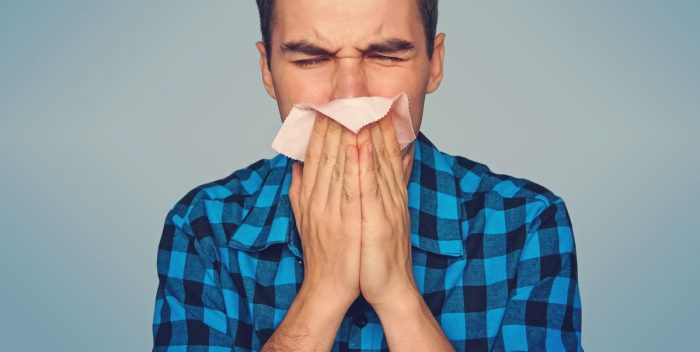Dealing with catarrh during harmattan
Does catarrh show any symptoms?
CATARRH itself is a symptom, not a disease. Symptoms are pointers to a disease process occurring in the living body. Catarrh is a symptom of an allergy or a respiratory tract infection, not the other way around. Other symptoms that might accompany catarrh are fever, sore throat, cough and headaches.
What causes catarrh?
IT is commonly caused by a self-limiting virus (common cold virus), which might just run its course and might require no treatment. It could be caused by the bacteria affecting the sinuses (air spaces) within the skull. It could also build up as a response to allergens (things that provoke an allergic reaction). In other words, it could be a result of allergies. Examples of allergens are pollen grains, dust and dust mites, smoke, animal danders, strong perfumes and even some food.
What are the treatments?
Catarrh usually runs its course without treatment. However, if the condition persists longer than expected (well over three weeks), you should probably see your doctor. If it is caused by the common virus, you might require no serious treatment. If caused by a more serious bacterial infection, your doctor would place you on appropriate antibiotics, anti-inflammatories, and anti-allergies.
If caused by allergies, your doctor would place you on anti-allergies and anti-inflammatories. Vitamin C is also a very important ingredient. Please note that some of these cases might require surgery, as it could be a pointer to something more sinister. Recurrent catarrh, drooling and sore throat in a child less than five years could be a result of massive tonsillitis, adenoiditis, or even a congenital respiratory or heart problem.
Are there home remedies for catarrh?
There are countless home remedies for catarrh. It all depends on tradition and the part of the world you find yourself. Note, however, that none is superior. People having catarrh should drink a lot of clean water to stay hydrated. They should avoid undue exposure to cold. Rather, they might take something hot (hot tea, hot chocolate or soup, and not alcohol) or something minty to clear the sinuses.
Harmattan is a season to expect more asthmatic attacks, because dust, a major component of the season is notorious for aggravating allergic reactions as we have in asthmatics. Nose bleeding is not left out this season. Mild trauma to the nose could unleash a scary amount of nose bleeding. This is as a result of the friable (fragile) blood vessels within the nose, which become extra thin during the harmattan season and ready to bleed on contact. This nose bleed can just be stopped by plugging the nostril(s) with cotton wool and elevating the head. The skin is usually very dry and thin this season, making it very prone to abrasions and bruises. So, people should ensure they keep their skin moist.
It is advised to dress appropriately this season to avoid unnecessary respiratory tract infections and allergies. Asthmatics should walk around with their inhalers. But if symptoms persist despite home remedies, then visit your doctor.








